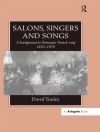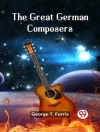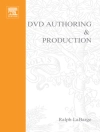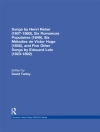British music in the era from the death of Henry Purcell to the so-called ’Musical Renaissance’ of the late nineteenth century was once considered barren. This view has been overturned in recent years through a better-informed historical perspective, able to recognise that all kinds of British musical institutions continued to flourish, and not only in London. The publication, performance and recording of music by seventeenth- and eighteenth-century British composers, supplemented by critical source-studies and scholarly editions, shows forms of music that developed in parallel with those of Britain’s near neighbours. Indigenous musicians mingled with migrant musicians from elsewhere, yet there remained strands of British musical culture that had no continental equivalent. Music, vocal and instrumental, sacred and secular, flourished continuously throughout the Stuart and Hanoverian monarchies. Composers such as Eccles, Boyce, Greene, Croft, Arne and Hayes were not wholly overshadowed by European imports such as Handel and J. C. Bach. The present volume builds on this developing picture of the importance of British music, musicians and institutions during the period. Leading musicologists investigate themes such as composition, performance (amateur and professional), and music-printing, within the wider context of social, religious and secular institutions.
Innehållsförteckning
Introduction –
Peter Lynan and Julian Rushton
Part I. Performers and Performance Style
1. Henry, Elizabeth, and George: New Light on Music at Wilton House in the 1770s –
Peter Holman
2. Wilhelm Cramer, the Professional Concert, and the Foundation of the Modern Symphony Orchestra –
Simon Mc Veigh
3. Thomas Vincent (1723-1798): Oboist, Composer, and Entrepreneur –
Michael Talbot
4. J. C. Bach and the ’true Organ Style’: Propriety and Impropriety in Eighteenth-Century English Organ Music –
Peter Lynan
Part II. Composers and Secular Institutions
5. Henry Purcell’s Mad Songs in the Theatre and Concert Rooms in the Eighteenth Century –
Olive Baldwin and Thelma Wilson
6. From ’Fowle Originall’ to ’Printed for the Author’: The Autograph Score of William Croft’s ’Laurus cruentas’ –
Alan Howard
7. James Lates of Oxford and his Sixteen Minuets –
Susan Wollenberg
8. William Hayes (1708-1777), Professor of Music –
Simon Heighes
Part III. Sacred Music and Institutions
9. Music and Musicians at Westminster Abbey, 1685-1760 –
Tony Trowles
10. Catholic Church Music in Eighteenth-Century Britain –
John Caldwell
11. Precedents for the Symphony Anthem: British Library Additional Manuscript 31434 and the Court of Charles I –
Jonathan P. Wainwright
Part IV. Dissemination: Printing and Publishing
12. ’You can’t have it of Smith except you’ll have it wrote out on Purpose’: Eighteenth-Century Copyists of Handel’s Music in London and the ’Smith Scriptorium’ –
Donald Burrows
13. The Earliest Surviving Engraved Music Plates? –
Peter Ward Jones and Kelly Domoney
Epilogue:
Musica Britannica and the Eighteenth Century –
Julian Rushton
Harry Diack Johnstone: A Tribute
Bibliography of the Works of Harry Diack Johnstone
Index
Om författaren
JULIAN RUSHTON is Emeritus Professor of Music, University of Leeds.












